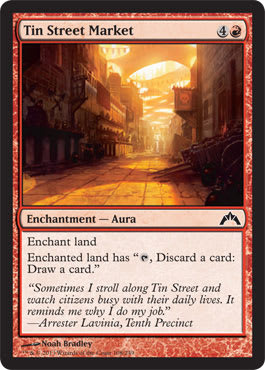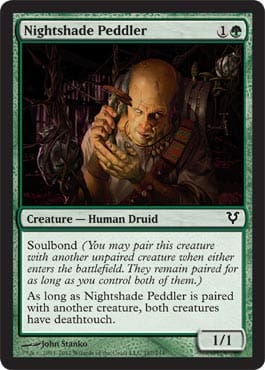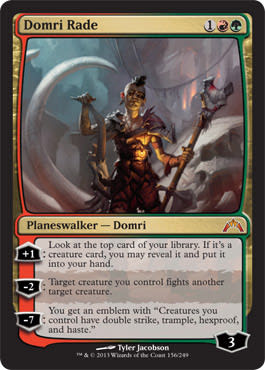I started the conversation this morning by simply asking him what he, as a buyer, believes the public should know to make the whole process easier for all. The first thing that he brought up was the fact that people will bring their phones to the booth to compare buy lists. Though this may seem like something that you want to do in order to save yourself from losing any money on your cards, it will probably cost you more in time than it is worth. I suggest memorizing or at least having a guideline of what your cards are worth—not only on a buy list, but personally as well. A buyer is much less likely to want to give you advice or work with you when you stall the process. This is not to say you cannot think about some cards before you sell them, but there are simple solutions—such as asking to come back to a card or setting it to the side while you figure out your stance—that can save you both time and hassle. If nothing else, ask the buyer what he or she thinks or what he or she sells it for. If you are working with someone you trust or who is known for having a clean reputation, he or she is probably going to tell you why he or she is buying it for that amount—most people just never ask.
On the topic of conversation, it is always pleasant when I am behind the booth and the person I am buying from strikes up a conversation. This is our job, but that doesn’t make us slaves or prisoners; we too are people and don’t mind chatting about sports, Magic, or just general nonsense. There is no reason to stonewall someone when he or she is buying your cards. You may even accidentally find yourself finding better prices from people you frequent. Beyond just the cards you have, this can also give you a good idea of what to pick up in trades that weekend. Asking buyers what cards they are paying well on or looking for can provide you with a hotlist of sorts to shop around that weekend. Knowing you can move a card for a good margin makes it much easier to trade if you are looking to cash out. This also helps the buyer, as he or she is obviously running low on those particular cards and is seeking them. The buyer doesn’t care whom he or she buys them from as long as the buyer is able to obtain them, and he or she is usually more than willing to give you a short list at the beginning of a weekend.
I also asked my friend what he prefers to avoid when buying cards, and after he started telling me, I realized I was frequently annoyed by the same issues. The biggest issue he mentioned is when friends who think they know their prices try to sell your cards over your shoulder. If this person is actually informed and can give simple “yes” or “no” answers, the process remains simple. It seems, however, that many people believe themselves much more informed than they actually are and will attempt to argue prices with the buyer. If you don’t believe a card is worth selling for the price you were offered, just say “no;” as a buyer, I will not be offended, but please do not argue about why my price or anyone else’s is what it is. We know what we can buy cards for, and if that price is lower than you are willing to let your copies go for, simply pass. Having your friend discuss why you shouldn’t sell a card only holds up the process and makes the buyer less likely to continue giving you the best service.
Beyond the actual process of buying, there are some issues that arise behind the booth that some people do not take into account when looking at this business. Many buyers have lists they have to work from, and unless you are working with an owner or lead buyer, the individual is usually required to stick to that list, meaning the number he or she gives you may not have any wiggle room. I don’t mind when people try to haggle a bit—and some cards I am in need of I may be willing to come up a bit on—but when someone asks for more on nearly every card, it grows tedious. It is best to just pass in most of these situations, and if the buyer really needs that card, he or she will probably throw a little better number at you. Small annoyances like this add up over the course of a weekend, and as someone who has been on the other side of the table, I know it can be stressful and tiring, so the easier someone makes my work, the more likely I am to hook him or her up with better deals.
The last topic of conversation that is something he brought up and that I had always taken for granted is grading. It occurred to me when he mentioned it that most people do not know how to grade cards. If you are unsure when you send a card in what condition it is in, you are only setting yourself up for disaster. No one wants destroyed cards, and no one likes being paid half of what he or she expected or having a bunch of cards sent back. If you are not sure on your ability to grade cards, there are a number of guides that can streamline the process for you and give a better idea of what your card is actually worth according to each buy list. I use TCGplayer and have found their grading guide to be the best online—it can be found here. This guide gives a detailed description of each condition and is fairly universal as to what most stores would consider each card to be.
If you believe your card may be played, mark it as such when you sell it—or at least be aware of what each site’s markdown percentage is from its near-mint price. Some stores are pickier than others, but overall, if you send cards in the near-mint-to-light-play category, you will find you are receiving relatively close to the amount it stated in the beginning. It is also important to mention that some stores will buy played cards while others look for mostly near-mint inventory. This information can help decide whom you should be selling each card to and saves both you and the company time and energy when it comes to moving cards. If you plan on moving large quantities of cards, this can especially be relevant, as stores are more likely to push through your order if they don’t have to deal with all of the legwork of hard grading and correspondence with a customer about how to proceed.
As I mentioned earlier, if you have any particular questions for me or my friend, please feel free to ask in the comments section below, on Twitter, or on any other social media outlet. As always, thank you for reading, and join me next week as I talk about some of the less-well-known ways to move your cards that can be worth your time if you have the stock. I will also be talking about what to watch for in the coming Standard, as States will be behind us, giving us the start of a metagame. As a teaser, I believe trading for your copies of Domri Rade right now is about the best decision you can make; I would not be at all surprised to see that card top $50 in the next few weeks, as R/G aggro continues to be a metagame player, jamming four copies of this guy in every main. Please let us know if you have any experiences with buyers that have taught you anything you feel others should know.
Ryan Bushard



























